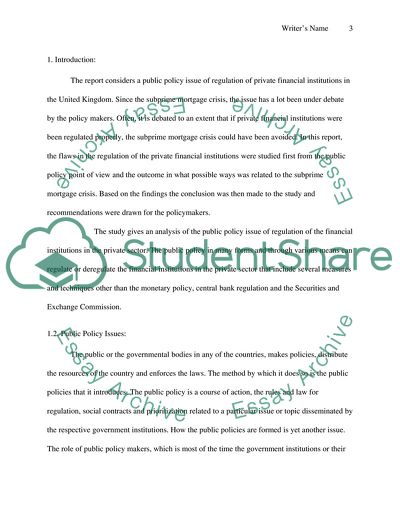Cite this document
(“Public Policy Issues - Need For Regulation in the UK Financial Institu Article”, n.d.)
Public Policy Issues - Need For Regulation in the UK Financial Institu Article. Retrieved from https://studentshare.org/finance-accounting/1745733-public-policy
Public Policy Issues - Need For Regulation in the UK Financial Institu Article. Retrieved from https://studentshare.org/finance-accounting/1745733-public-policy
(Public Policy Issues - Need For Regulation in the UK Financial Institu Article)
Public Policy Issues - Need For Regulation in the UK Financial Institu Article. https://studentshare.org/finance-accounting/1745733-public-policy.
Public Policy Issues - Need For Regulation in the UK Financial Institu Article. https://studentshare.org/finance-accounting/1745733-public-policy.
“Public Policy Issues - Need For Regulation in the UK Financial Institu Article”, n.d. https://studentshare.org/finance-accounting/1745733-public-policy.


